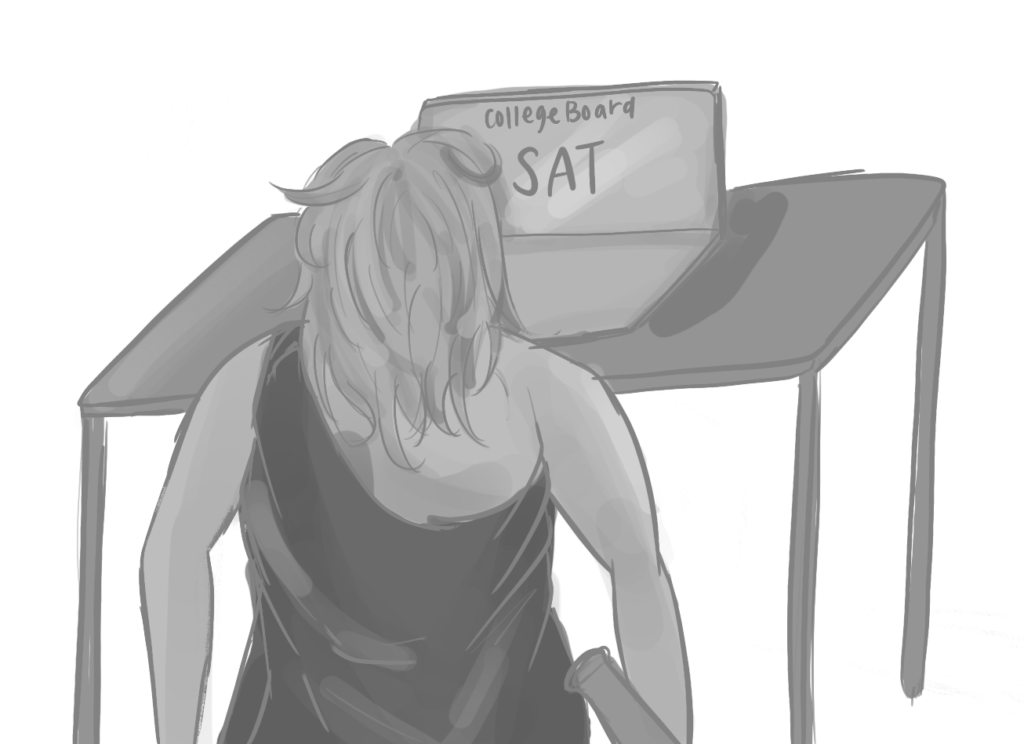In January, the College Board announced that the SAT will move to a fully online format in 2024. The test will be condensed from three hours to two hours, reading passages will be made shorter and more “diverse” and calculators will be permitted in every subject. The College Board claims the changes will make the SAT more accessible, easier to administer and more relevant to our pandemic climate.
These are all signs of desperation. The SAT is growing increasingly irrelevant: Several colleges have gone test-optional for the indefinite future as educators recognize that standardized testing is a poor way to measure students’ capabilities. Not to mention, wealthy students have access to tutoring services, which boost their scores, creating an uneven playing field.
Digitizing the SAT not only exacerbates this inequality, but seems like a desperate attempt for the College Board’s vision of standardized testing to remain in place for the future.
Making the test fully online only accentuates socioeconomic gaps. Testing centers in less affluent neighborhoods have more limited bandwidth and online access. Many of the issues that affected the College Board during online AP testing season — online timers running out without warning, software crashes and poor internet — will transfer over to the SAT.
Furthermore, shortening reading passages diminishes the value of the section. Instead of gauging how well students can parse large amounts of intricate information, the shorter SAT reading section tests speed reading. Making reading passages more “diverse” is a commendable effort, but is vaguely stated with no elaboration and is hardly one that will actually solve the exam’s existing racial and socioeconomic problems.
Instead of trying to adapt an existing standardized test in an age where the entire industry is on the decline, the College Board should create a new type of test that expands beyond the boilerplate reading, writing and math sections: major-specific exams similar to the pre-major tests of Oxford. These exams would be similar to AP exams in that they test a specific subject in depth, but should focus more on recognizing clever and creative ideas and exploring problems instead of conforming to a particular rubric.
For example, mathematics should award extra points for particularly innovative solutions; biology should place greater emphasis on conceptual understanding than the large amount of rote knowledge required for the AP exam, and English should emphasize tweaking and submitting personal works of writing over long periods of time.
These exams would be harder to use tutoring services for because of their relatively non-standardized format. Additionally, since people typically only declare one or two intended majors across all colleges they apply to, there would be no benefit to taking exams in multiple subjects. Thus, students could focus on preparing for an exam that is related to what they plan on studying in the future, rather than deciphering history reading passages when their goal is to become a geophysicist.
Such changes would discourage students from applying to a less selective major that they are not truly interested in, only to later change this upon matriculation to the college. If a student claims that their childhood dream is to study East Asian history, it is more important that they understand Vietnam’s culture is than how to solve quadratic equations.
This would be completely different from the current AP testing system, which implicitly encourages “AP stacking” where students hope that collecting APs will guarantee them a top college acceptance.
The relatively unstructured format of these tests would ensure that they truly measure aptitude — like the SAT was supposed to do — rather than the amount of time spent preparing for a specific type of question or number of trained tutors and courses used to study.
Digitizing the SAT simply puts a band-aid over the fundamental problems of standardized testing itself. The constant changes to the SAT are a reflection of a society that is increasingly willing to cast away standardized testing as something archaic. Instead, adapting testing to reflect future potential rather than just current knowledge would diminish the inequality that underlies the current testing system.


























